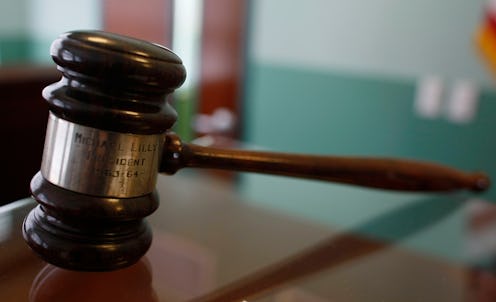News
Judge Rules To Allow Doctors To Refuse Patients

Piggybacking on the recent bout of bad news for women and LGBT rights, including Ohio's passing of a 20-week abortion ban, a judge in Texas gave one last cruel parting gift from 2016 when he ruled Saturday that doctors may refuse to treat transgender patients, as well as women who have had abortions, in the name of "religious freedom."
You may remember that back in 2014, the Supreme Court ruled in Burwell v. Hobby Lobby that family-owned businesses didn't have to pay for insurance coverage of contraception under the Affordable Care Act, supposedly to protect business owners whose religious beliefs conflicted with the use of contraception. That protection is known as the Religious Freedom Restoration Act. The Hobby Lobby ruling was certainly a warning sign of things to come, allowing businesses to use religious freedom as an excuse to discriminate against people. This recent ruling takes things even further, allowing doctors to decline to treat patients when their religious beliefs conflict with those patients' needs.
Per U.S. District Judge Reed O'Conner's verdict, the anti-discriminatory language of the ACA forces doctors to "remove the categorical exclusion of transitions and abortions (a condition they assert is a reflection of their religious beliefs and an exercise of their religion) and conduct an individualized assessment of every request for those procedures." Apparently, he feels that doctors not discriminating against their patients is just too much of a burden to bear.
A ruling like this only adds to the growing worry of weakening civil rights under Donald Trump. Ever since he announced his campaign, the president-elect has voiced his intention to repeal the ACA, despite the fact that it would leave many without health care coverage. However, according to this ruling, even if transgender patients and women with abortions have health care coverage, they'll still have to find doctors willing to treat them.
The ruling seems to directly violate the basic premise of being a doctor, as well as the oath doctors take before they can practice medicine. While the Hippocratic Oath is so old that it isn't necessarily relevant in modern-day medicine, the idea behind it, that the doctor pledges to "do no harm," stands.
It was one thing when the Hobby Lobby decision was made and employers weren't required to provide contraception on their insurance plans, but it's a whole other issue to involve doctors in this type of discrimination based on religious beliefs. And it's much different from the argument that business owners such as bakers and photographers should be able to refuse wedding-related service to same-sex couples because of their religion. Doctors provide medical care to people who may desperately need it. It's not a commercial service, and no one should be turned away from a provider because of their medical history.
Hopefully this isn't just the beginning of a slate of rulings that would leave many people vulnerable to discrimination, but the odds do not look great.